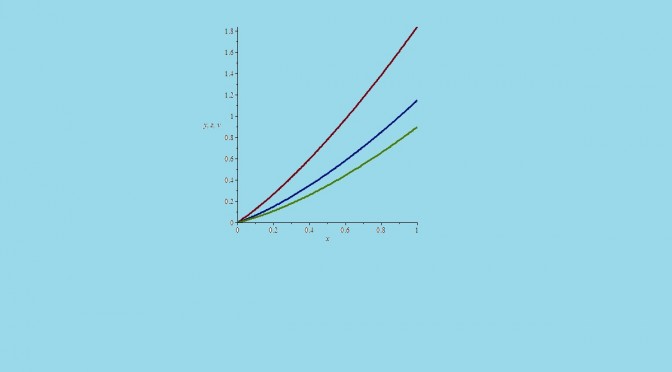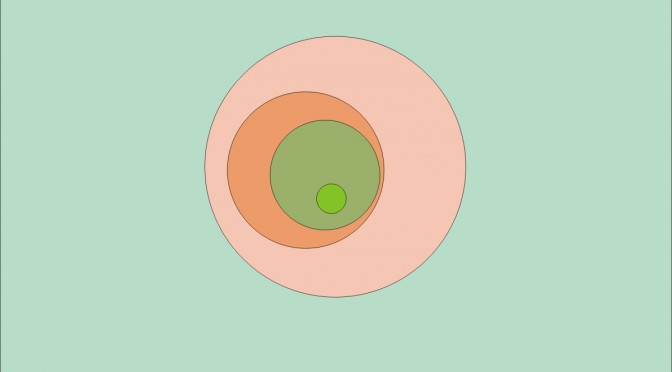Look at pi-Base for a gold mine of topological examples.
Monthly Archives: August 2014
A continuous differential equation with no solution
Most of Cauchy existence theorems for a differential equation
\begin{equation}
\textbf{x}^\prime = \textbf{f}(t,\textbf{x})
\end{equation} where \(t\) is a real variable and \(\textbf{x}\) a vector on a real vectorial space \(E\) are valid when \(E\) is of finite dimension or a Banach space. This is however not true for the Peano existence theorem. Continue reading A continuous differential equation with no solution
Wikipedia Counterexample definition
Want to know more about counterexample definition? Look at Wikipedia.
An empty intersection of nested closed convex subsets in a Banach space
We consider a decreasing sequence \((C_n)_{n \in \mathbb{N}}\) of non empty closed convex subsets of a Banach space \(E\).
If the convex subsets are closed balls, their intersection is not empty. To see this let \(x_n\) be the center and \(r_n > 0\) the radius of the ball \(C_n\). For \(0 \leq n < m\) we have \(\Vert x_m-x_n\Vert \leq r_n – r_m\) which proves that \((x_n)_{n \in \mathbb{N}}\) is a Cauchy sequence. As the space \(E\) is Banach, \((x_n)_{n \in \mathbb{N}}\) converges to a limit \(x\) and \(x \in \bigcap_{n=0}^{+\infty} C_n\). Continue reading An empty intersection of nested closed convex subsets in a Banach space


